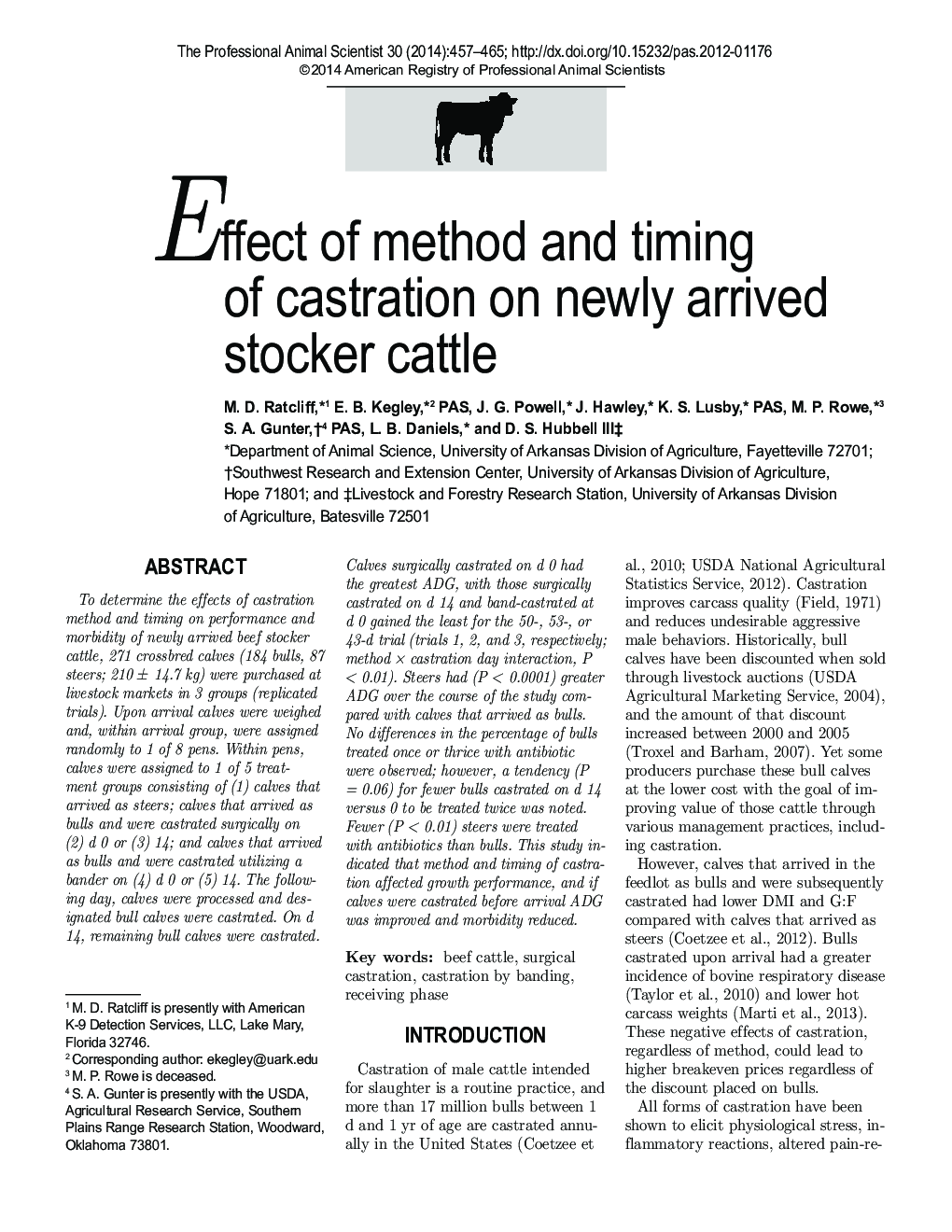| Article ID | Journal | Published Year | Pages | File Type |
|---|---|---|---|---|
| 2453870 | The Professional Animal Scientist | 2014 | 9 Pages |
Abstract
Calves surgically castrated on d 0 had the greatest ADG, with those surgically castrated on d 14 and band-castrated at d 0 gained the least for the 50-, 53-, or 43-d trial (trials 1, 2, and 3, respectively; method Ã castration day interaction, P < 0.01). Steers had (P < 0.0001) greater ADG over the course of the study compared with calves that arrived as bulls. No differences in the percentage of bulls treated once or thrice with antibiotic were observed; however, a tendency (P = 0.06) for fewer bulls castrated on d 14 versus 0 to be treated twice was noted. Fewer (P < 0.01) steers were treated with antibiotics than bulls. This study indicated that method and timing of castration affected growth performance, and if calves were castrated before arrival ADG was improved and morbidity reduced.
Keywords
Related Topics
Life Sciences
Agricultural and Biological Sciences
Animal Science and Zoology
Authors
M.D. Ratcliff, E.B. PAS, J.G. Powell, J. Hawley, K.S. PAS, M.P. Rowe, S.A. PAS, L.B. Daniels, D.S. III,
